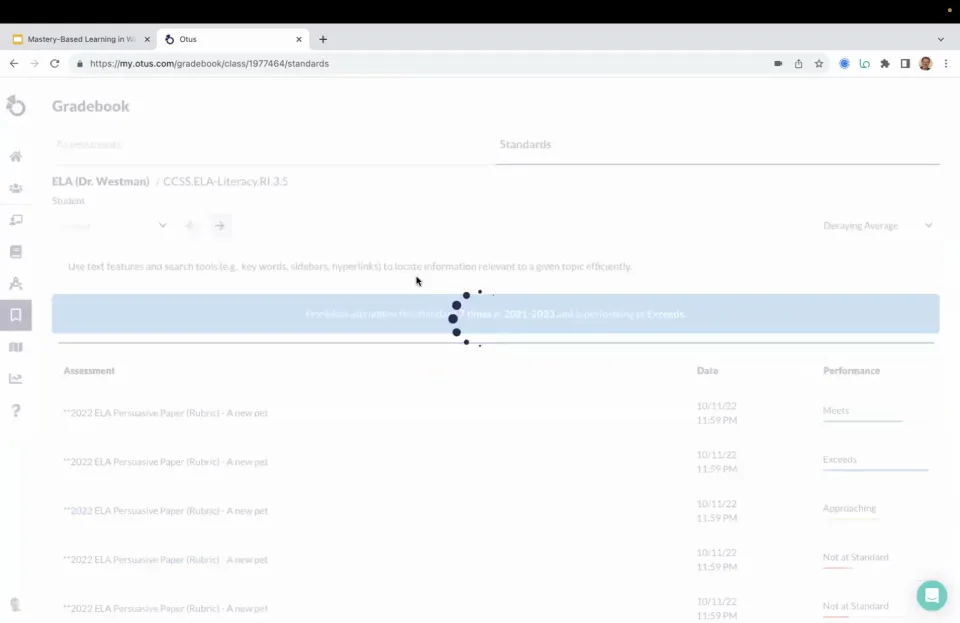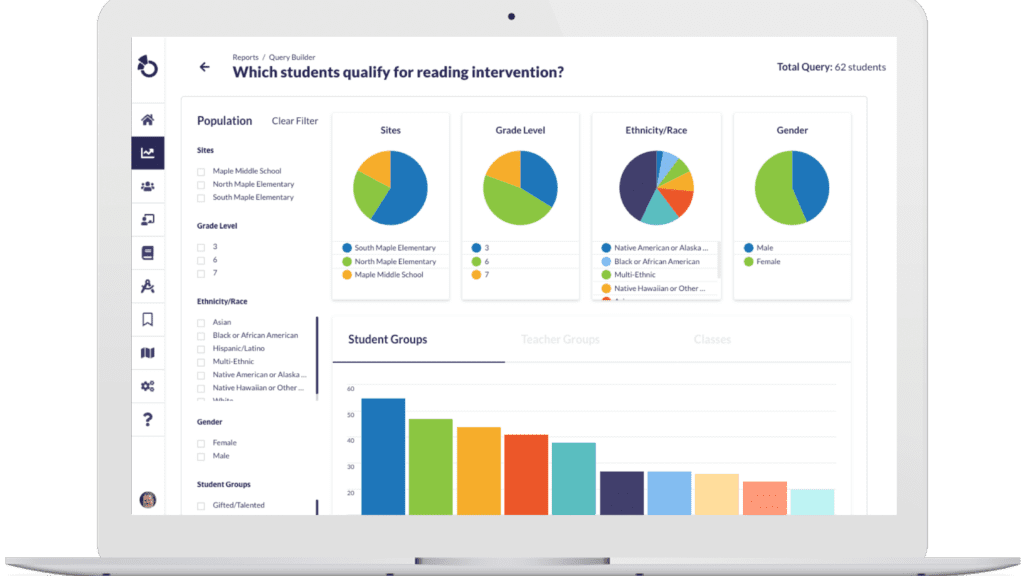Aligning with Washington's Educational Vision: The Role of Otus in Mastery-Based Learning
By: Keith Westman
Washington State Board of Education’s Strategic Plan for 2024-2028 presents a roadmap for educational excellence and equity. In this journey, district-level administrators will need to implement mastery-based learning, an instructional approach designed to help students learn deeply and effectively. As educators and administrators increasingly embrace mastery-based learning, the need for effective tools to facilitate this approach has never been more critical.
This post will guide you through the various aspects of Otus that will help Washington educators, from its innovative assessment tools and rubric-based assessments to its mastery-based gradebook and emphasis on student agency.
Innovative Assessment Tools
Otus offers educators several ways to measure student performance, including pre-built assessments from leading K-12 education companies that many schools are already using. You can also build your own assessments in Otus to measure academic and non-academic performance for any grade level. With over 65 different types of tech-enhanced questions (i.e. drag and drop, multiple choice, highlighting text, recording an audio file, etc.) and access to our growing library of item banks and research-backed pre-built assessments, there are countless ways for students to demonstrate mastery of skills through our engaging and innovative tools.

Rubric-Based Assessments
Otus Rubric assessments are great for measuring student performance on project-based learning tasks and can be aligned to any learning standard. They are easy to create, integrated with Google Docs, and can be used multiple times to track ongoing growth.

Mastery-Based Gradebook
Your students' assessment data is automatically loaded into a gradebook that displays their mastery of learning standards, providing a clear understanding of their progress and proficiency in each subject area.

Differentiation
Otus enables educators to effectively utilize formative assessment data to create tailored learning experiences for students. One of the key features of Otus is its ability to organize and analyze assessment data, which allows teachers to easily identify students' performance levels on specific standards. This process is streamlined through the mastery-based gradebook, where educators can view a detailed breakdown of each student's performance across various standards.
Furthermore, Otus simplifies the creation of student groups based on their performance levels. For instance, teachers can quickly group students who are excelling or those who need additional support in certain areas. This grouping functionality is crucial for implementing differentiated instruction, as it enables educators to assign targeted assessments, extension activities, or additional resources to each group, ensuring that every student's unique learning needs are addressed. By reducing the complexity and effort required in organizing and acting upon assessment data, Otus significantly enhances the capacity of educators to provide differentiated instruction effectively.

Student Agency
Otus enhances student agency in the learning process through its comprehensive tracking and progress monitoring tools. Plans, a feature used in Otus for progress monitoring, fosters long-term student engagement and self-awareness in their educational journey. Plans allows for tracking of student progress across multiple school years, including monitoring of a student's development against a set of competencies or attributes defined by the state of Washington and those highlighted in the “Profile of a Graduate”. This approach allows students, along with their teachers and families, to view and update their progress on these competencies, thereby promoting a sense of ownership and active participation in their learning. By providing visibility into their performance and growth over an extended period, Otus empowers students to take an active role in their educational journey, fostering a deeper understanding of their strengths, areas for improvement, and overall academic progress.

Conclusion
Otus is a pivotal tool needed to support mastery-based learning, particularly within the context of Washington's educational initiatives. Through its innovative assessment tools, rubric-based assessments, and a mastery-based gradebook, Otus not only simplifies the assessment process but also elevates it to new heights. Its capabilities in fostering differentiation and enhancing student agency demonstrate a deep understanding of the needs of modern educators and learners. As we have explored, Otus is more than just a digital platform; it's a catalyst for educational transformation, empowering teachers to tailor their instruction and students to take charge of their learning journeys.
Watch our on-demand demo of Otus to see the functionalities and benefits of the platform in supporting mastery-based learning and “Profile of a Graduate” initiatives in Washington state schools.

Related Resources
Request a demo!
See exactly how Otus can help your school accelerate student growth and improve student outcomes – all while saving educators time.





